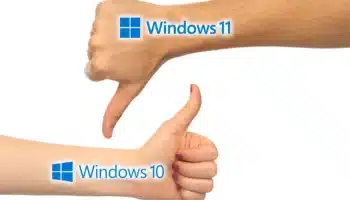UN conference shines light on technology 'haves' and 'have nots'
A two-day environmental conference at the UN this week pointed up the differences between developed and less developed nations. But did it also help to bring these two sides closer together?
UNITED NATIONS (BetaNews) - This week at the United Nations -- indisputably one of the world's most visible opinion forums -- BetaNews was present for a conference that shone the spotlight on an intriguing and important dictotomy in the global environment. The two-day event in New York City juxtaposed first-hand accounts of environmental damage to less advantaged nations, raised by UN officials, against the efforts of major computer makers from the industrialized nations to do a better job of preventing ecological harm.
Verizon Wireless to move toward LTE as its 4G platform
Proving it still had some fireworks left over from Monday, Verizon Wireless announced this afternoon its corporate parents will be steering its communications platform evolution away from the path it was already on.
Vodafone and Verizon will be jointly investing their efforts in LTE, the brainchild of the Third Generation Partnership Project (3GPP). Although they are both members of the project, as are US competitors AT&T and Sprint, the Long Term Evolution platform competes with the technology portfolio of 3GPP member Qualcomm. So membership has never necessarily been an indication of platform preference.
'Free' electronics claims cost advertiser $650,000
The FTC is cracking down on claims of "free" electronics, such as an Xbox 360 or an iPod, fining a major advertising company $650,000 for its deceptive marketing tactics.
You've seen them before: e-mails and online banners promising a free iPod simply by clicking an ad. But those who do take the bait quickly discover they must first wade through a series of third party promotions, and then are forced to sign up for offers before being eligible for the gift.
Silverlight 1.1 beta to become 2.0 beta
The edition of Silverlight that Microsoft touted from the beginning as having the C# and .NET functionality that its 1.0 edition lacked, is evolving from what it had described as an upgrade into a major overhaul.
Since its inception, Microsoft has continually been developing two versions of its programmable Web graphics platform Silverlight. In fact, on the very day of its public premiere, the company introduced developers to what was being called the "1.0 beta" and the "1.1 alpha."
US Coast Guard and Rutgers apply new software to disaster planning
The more complicated the environment, the tougher it is to do effective disaster planning. For cities in some major port areas, government officials are turning to computer-based simulations from Rutgers University.
Hurricane Katrina and the September 11th attack have alerted the US to the devastation that can ensue from natural disasters and terrorist activities. Now officials in other parts of the globe, ranging from the Istanbul Strait to the Delaware Bay, are working with researchers from Rutgers University on computer-based methods of comprehensive disaster planning.
Microsoft shows off Windows Mobile update, but not 7.0
Two dozen invited attendees to Microsoft's Mobius event in Amsterdam this week got a first peek at the next update to Windows Mobile. It's not version 7, code-named "Photon," but the reviews are positive. Unfortunately because the presentation was under NDA, little specifics are known at this point.
"Our first impressions: very slick, and has a lot of features that just about any WinMo user will agree is way overdue," wrote Engadget editor Ryan Block. "It will be a free update given to device makers in Q1 2008. We saw it running on current hardware, it looked freaking impressive," remarked Judie Lipsett from Gear Diary. Mobius runs through tomorrow and gives Microsoft, as well as device makers, a chance to get direct feedback from Windows Mobile enthusiasts. The Redmond company paid for attendees' airfare and hotel, along with giving everyone an HTC Touch Dual handset.
Exploding cell phone didn't kill Korean man
It was a story destined for big headlines: A cell phone battery exploded and caused the death of a man in South Korea. Fortunately for handset maker LG Electronics, it just wasn't true.
After further examination, and perhaps a little common sense, it turns out the battery didn't break the man's spine and ribs.
European mobile broadcast standard still up in the air
In an outcome that can best be described as quintessentially European, both sides in the debate over adopting DVB-H as Europe's official standard for digital mobile broadcasting have claimed full victory.
News of the outcome of today's vote of EU member states on, among other matters, the adoption of DVB-H as the one and only digital broadcast standard was so bipolar in nature that Reuters today reported the measure was adopted, while the Associated Press reported it was rejected.
AT&T CEO lets it slip: 3G iPhone is on its way
AT&T CEO Randall Stephenson said that Apple is working on a 3G model of its iPhone set to debut next year.
Apple has a habit of trying to keep things under wraps. However, with that company partnering with others more often these days, and with those others apparently having less stringent policies on talking about future products, the curtains may be coming up prematurely on some of Apple's plans.
EMI may cut funding for RIAA, trade groups
The future of the fight against piracy may be a lot less certain following rumors that music label EMI would like to make cuts in the funding of trade groups.
The four major music publishing labels -- EMI, Warner, Sony BMG, and Universal -- reportedly make regular payments to international representative groups such as IFPI and the RIAA. IFPI alone gets about $132 million a year from the four publishers, and that amount could be similar for RIAA, although no data was available.
Gucci tests anti-terrorist satellite tracking for securing clothing designs
Active RFID isn't just for tracking arms shipments any more. BetaNews has learned that luxury consumer goods designer Gucci is working with Xpondr to test an emerging mix of technology for preventing theft aboard ocean ships.
NEW YORK CITY (BetaNews) - How can you keep international freight safe from the hands of terrorists and crooks? A tech start-up called Xpondr is now beta testing ANTS (Autonomous Node Transfer System), a satellite-, active RFID-, and GPS-enabled solution the vendor has developed to quell the security concerns of organizations ranging from national governments to Gucci and other makers of high-end consumer goods.
WinDVD gets Profile 1.1 certification from Blu-ray
Corel said Thursday that its WinDVD playback software had received certification from the Blu-ray Disc Association to playback discs that use the Profile 1.1 standard.
With the certification, WinDVD would become the first non-hardware playback option available on the market capable of supporting the updated standard. The first discs based on 1.1 are expected to hit the market in early 2008, as will the version of WinDVD with the capability.
Coming to a PDF near you: advertisements
Soon Adobe's popular document format will include functionality to support advertising, thanks to a new partnership with Yahoo.
The two companies are framing the service as a way to allow publishers to offer their content on an ad-supported basis. This could also accelerate the adoption of PDF as a way to deliver paper content to subscribers in electronic form.
HP's PC lead over Dell increases even further in Q3
As HP's market share soars, Dell's growth continues to underperform with PC shipment growth sagging to only 1.5% annually. Meanwhile, the flip-flop battle continues for the #3 and #4 slots.
Hewlett-Packard sold 16.8% more PCs worldwide in the third quarter of this year than the previous quarter, according to market research firm iSuppli, with just under 13.1 million PCs shipped. And its annual shipment growth rate of 32.7% is nothing short of astonishing; last quarter, that growth rate was only 4.4%.
Google tests GPS-less mobile phone location service
The Mountain View, Calif. search company is testing out new technology that would pinpoint a users location on a mobile phone even though it's not equipped with GPS capabilities.
Obviously without a GPS, the location given would not be as accurate as some may have come to expect. However, Google hopes to use the location indicator phones already provide to at least offer basic location-based services through an improved version of Google Maps.
BetaNews, your source for breaking tech news, reviews, and in-depth reporting since 1998.
Regional iGaming Content
© 1998-2025 BetaNews, Inc. All Rights Reserved. About Us - Privacy Policy - Cookie Policy - Sitemap.




